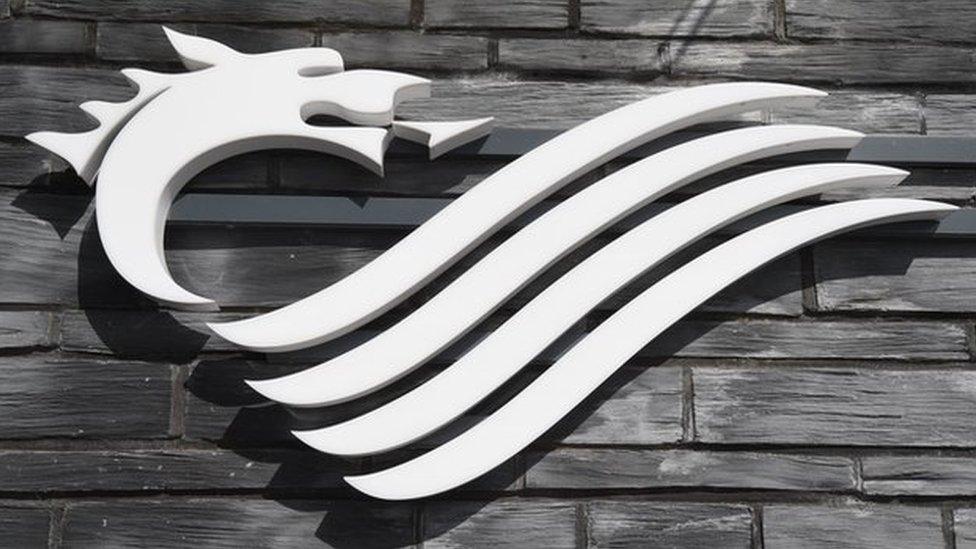Welsh Assembly election: Leaders clash on health and education
- Published
Leaders' debate in 75 seconds
Party leaders have clashed over health and education in their final TV debate before the Welsh Assembly election.
In the BBC Wales Leaders' Debate, First Minister Carwyn Jones said Labour ministers were spending a bigger share of their budget on the NHS than ever.
Rival parties attacked Labour's 17 year health record and presented their alternative visions for the service.
The programme, in Cardiff's St David's Hall, was broadcast just eight days before voters go to the polls on 5 May.
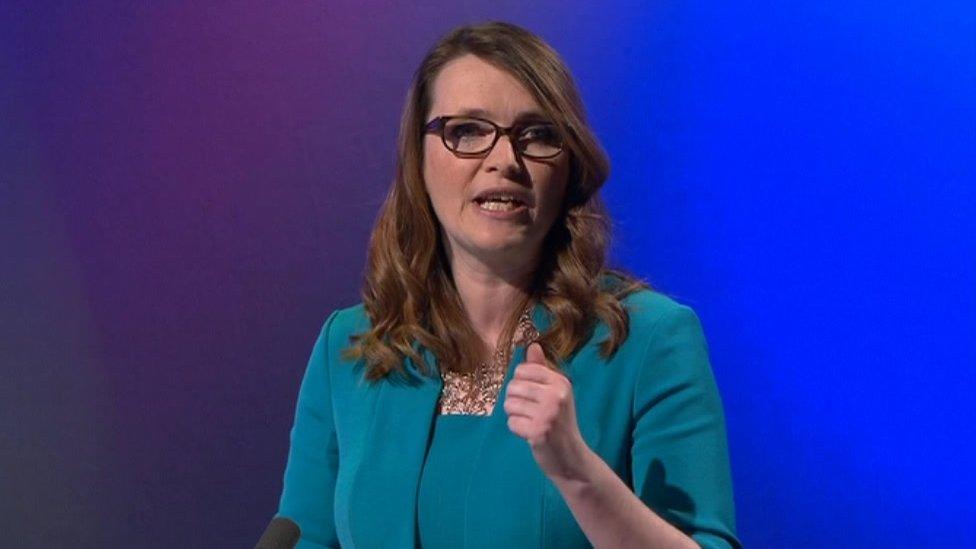
Kirsty Williams wants politicians to stop arguing over the NHS in Wales
Mr Jones came under concerted attack over his government's running of the NHS, from both the audience and his political opponents.
Liberal Democrat Kirsty Williams said pressure on the NHS could be reduced by improving patients' access to GPs with a £10m fund.
She stressed she wanted to "take politics out of the NHS", to "stop arguing" and "sit around the table with professionals".
Conservative Andrew RT Davies promised his party would protect NHS funding and not bring in a "wholesale reorganisation".
The health service needed that "like a hole in the head", he said.
A Tory Welsh Government would concentrate on tackling the "major killers" such as cancer and stroke, and work hard to retain good qualified staff, not just on recruiting them, he added.
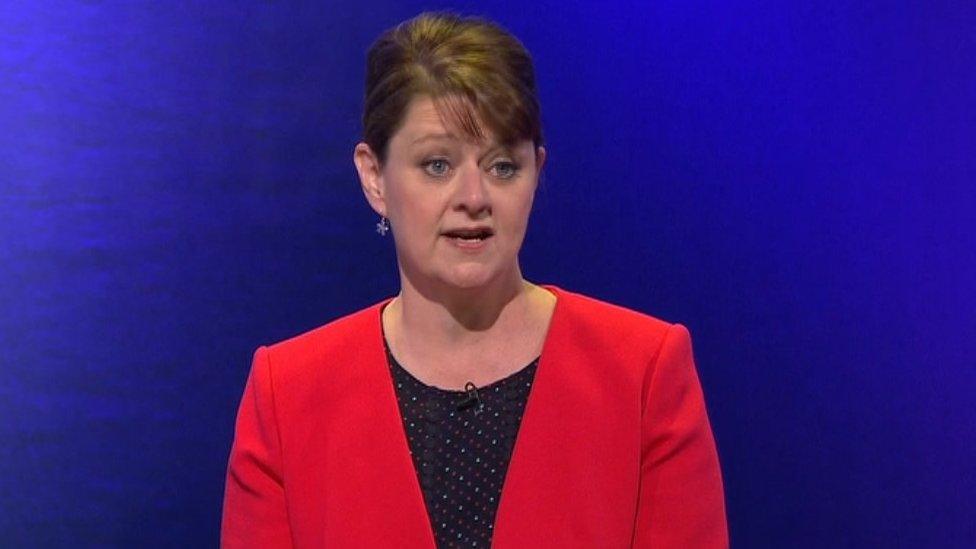
Leanne Wood said Plaid would recruit and train extra doctors
Labour had run down the NHS and the Conservatives would sell it off, Plaid Cymru leader Leanne Wood insisted.
Plaid would recruit and train extra doctors and nurses, and invest in the social care system to end the situation where some care is free and some is paid for, she said.
Defending his administration, Mr Jones said A&E was a "challenge" because demand went up every year.
Welsh ministers were doing more to prevent people such as the elderly getting into an "acute situation" and ending up in accident and emergency because it became the only option, he said.
Mr Jones challenged Ms Wood over her policy to put major hospital under a single administrative body.
Plaid Cymru would hand over the health service to a "giant quango" based in Cardiff, Mr Jones said. "I'd rather spend money on patients rather than potching about," he added.
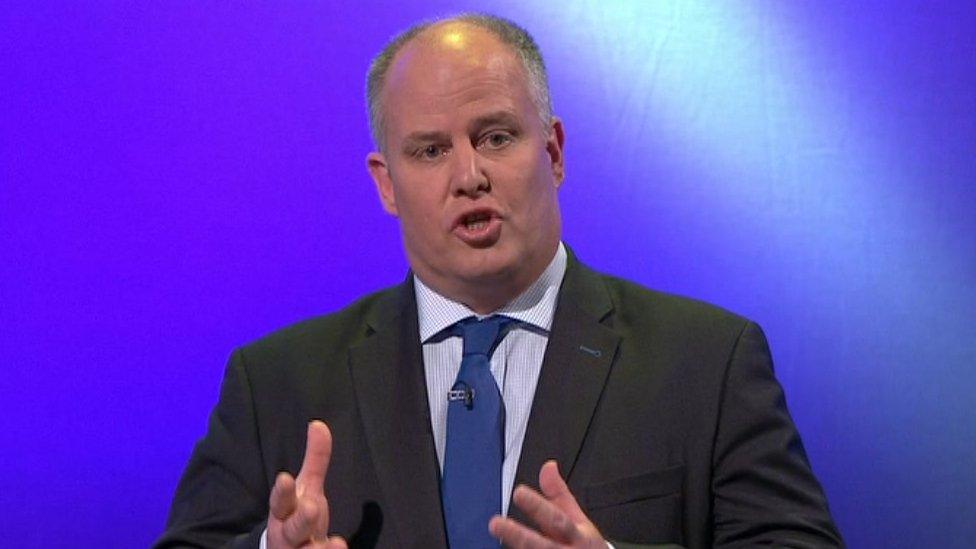
Tory leader Andrew RT Davies said the NHS would not face wholesale reorganisation
In heated exchanges between the two leaders, Ms Wood denied the new body would be a quango.
"We want the health minister to be responsible for health. We want the government to take responsibility, to stop being in denial.
"It's not a quango."
Mr Jones asked again where it would be based. Ms Wood paused, and added: "What do you mean where it would be based? It's the NHS, it's all over Wales."
Nathan Gill, the UKIP Wales leader, pledged to support family doctors who were providing most healthcare services with a minority of the resources, he said.
UKIP also opposed a transatlantic trade deal which would lead to more NHS privatisation, he warned.
The deal could only be fought if the UK were to leave the EU, Mr Gill added.
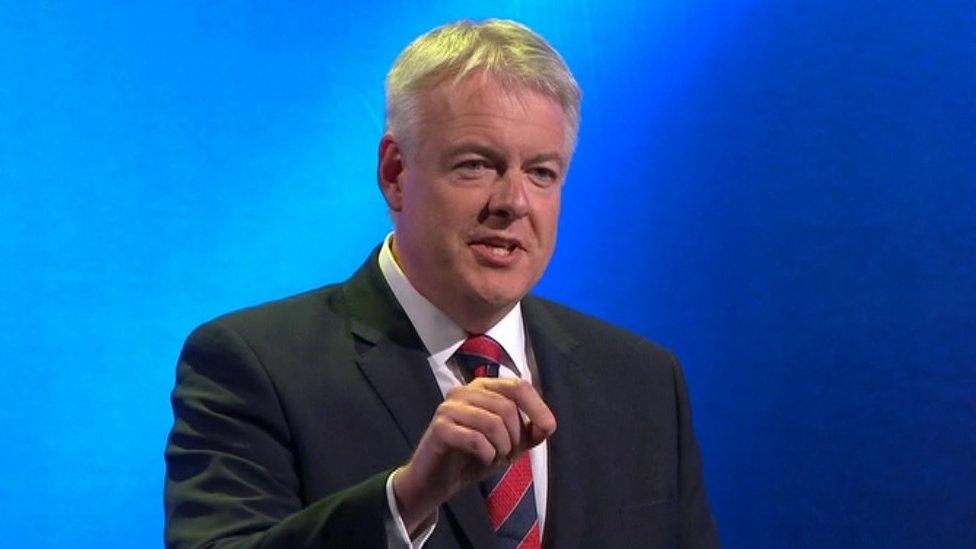
Carwyn Jones defended his party's record on the NHS
Wales Green Party leader Alice Hooker-Stroud said she wanted to go "back to basics" by encouraging a healthier society.
People needed warm homes, secure employment, safer walking and cycling routes, she said.
Tackling the "root cause" of poor health was the best approach, before people needed to seek treatment.
Ms Hooker-Stroud also said health services should have the resources they need, which Labour had not delivered despite introducing "lofty legislation".
Debating the future of education, Mr Gill called for the return of grammar schools for academic children, and vocational schools for those better suited to them.
He denied that under his party's system there would be an 11-plus system.
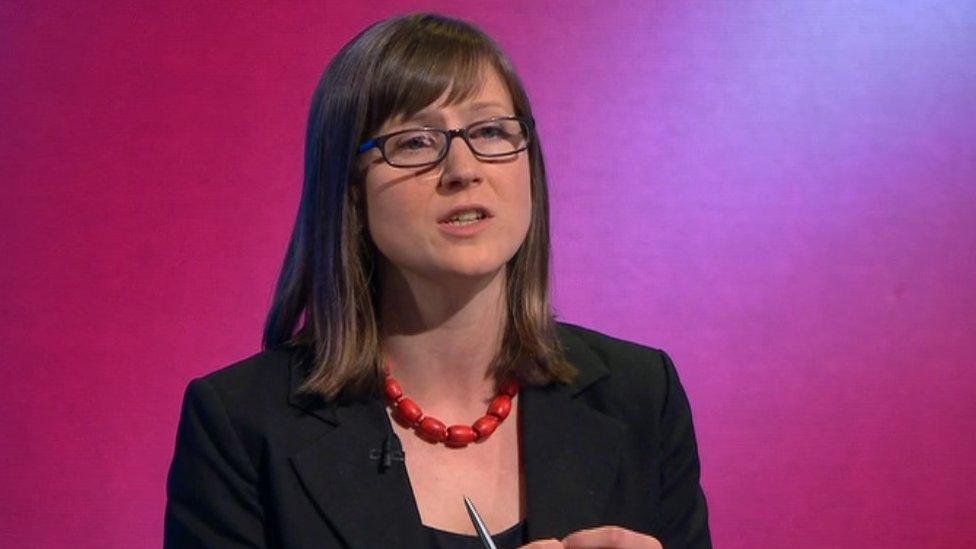
Alice Hooker-Stroud wants education to be about inspiring children
An audience member said: "It would be wonderful to put to bed the idea of grammar schools, because it's absolutely ridiculous."
She said: "If you know anything about child development you know at the age of 11 boys are behind girls. All of the figures have to be massaged in order to create the results of a 50/50 split."
But Mr Gill responded that this was why UKIP "wouldn't have an 11-plus".
"We would have entrance exams at 11, 12, 13, 15 and 16. People move in and out," he said.
Ms Hooker-Stroud said education should be about inspiring children, it was wrong to just "put them on a treadmill" for a job.
More effort was also needed to save schools in rural Wales, she said.
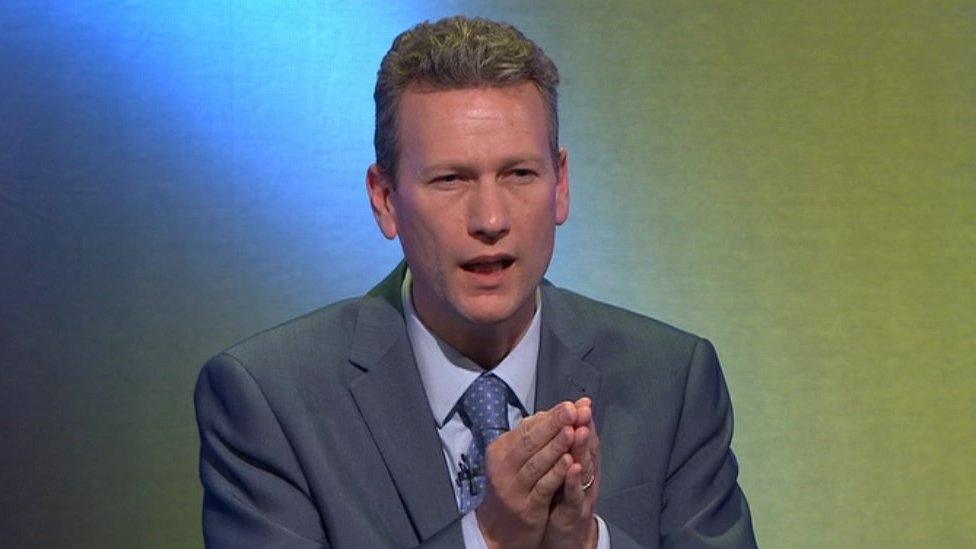
Nathan Gill called for the return of grammar schools for academic children
Mr Jones said teachers' pay and conditions could be improved if they were devolved to Wales, and Labour wanted to work towards a goal of ensuring school performance in the richest and poorest areas was of the same high standard.
Ms Williams said she had been shocked when Education Minister Huw Lewis had conceded that Labour had "taken its eye off the ball" on the basics in education, and she wanted teachers to have the time to teach their pupils with smaller class sizes.
A lack of what he called political leadership from Labour on education was attacked by Mr Davies, promising the Conservatives would give more money directly to schools and allow them more freedom to run their own affairs, within the national curriculum.
Ms Wood claimed Wales education standards were now lower than those of Vietnam and Estonia.
Plaid Cymru would invest more in scientists and engineers, early years education and better rewards for skilled teachers, she said.

Analysis by BBC Wales political editor Nick Servini
Nick Servini analyses the leaders' debate
The opposition parties certainly wanted the big debate tonight on the state of the NHS in Wales. I think they got that.
The tone was set very early on by Carwyn Jones in his opening statement. He didn't mention steel once, talked about the NHS and of course mentioned the junior doctors strike in England as evidence of a system that works in Wales.
Andrew RT Davies was pretty aggressive early on, trying to land blows on that highly charged subject of the cancer drugs fund.
It was very different from the leaders' debate last week where, in effect, the opposition parties were ganging up against Carwyn Jones.
This had a much more broken up feel about it, with different rows breaking up in different places.
It was striking that Carwyn Jones was focused more of his criticism not on the Conservatives but on Plaid, not just on the NHS, but funding on university tuition fees.
Leanne Wood at one point got fed up of this and accused Carwyn Jones of misrepresenting her party.
Meanwhile UKIP very much talked about the issue of the EU.
Inevitably all the parties are claiming victory. It will all be up to us to decide.
- Published27 April 2016
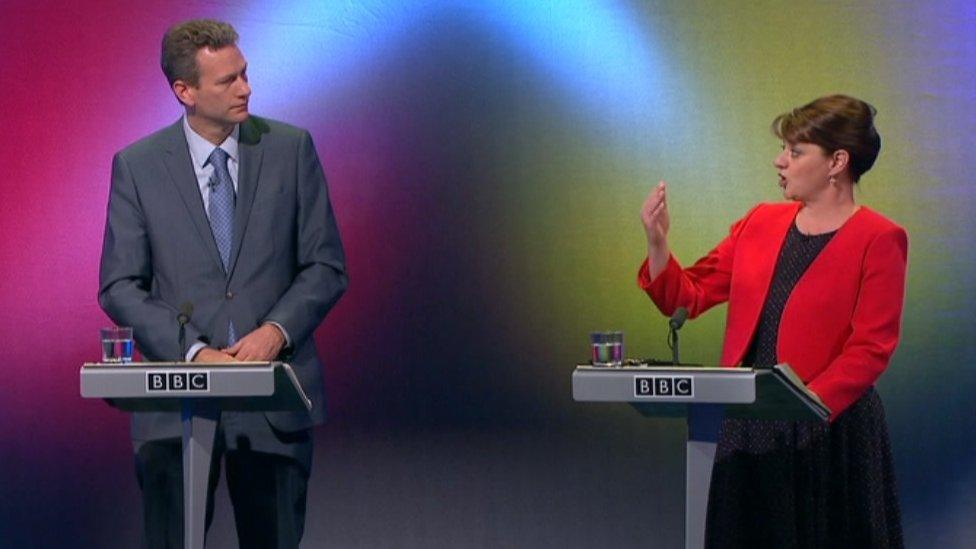
- Published25 April 2016
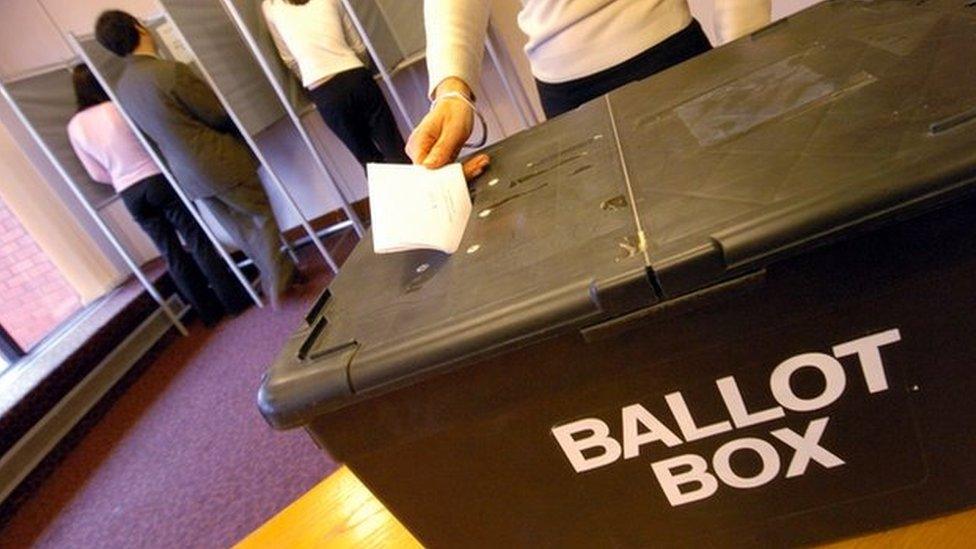
- Published22 April 2016
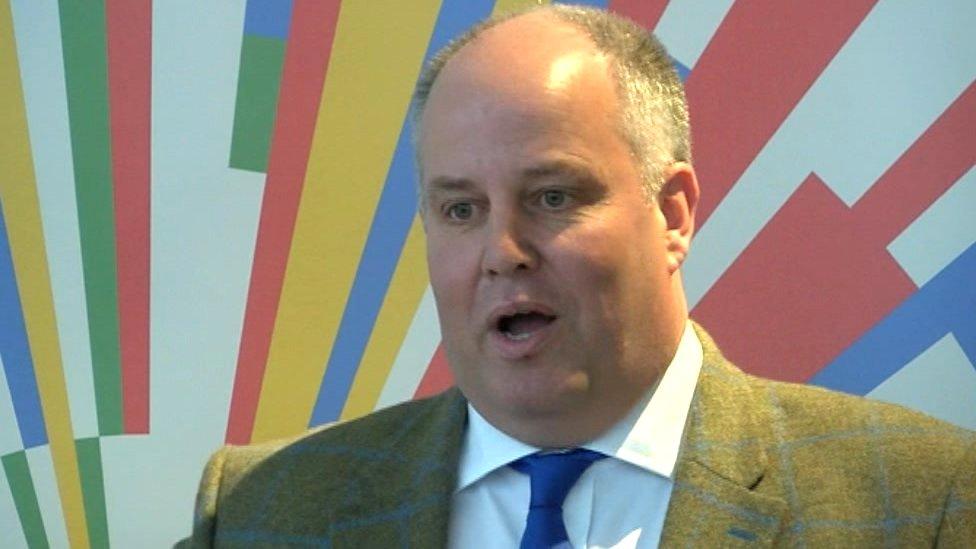
- Published20 April 2016
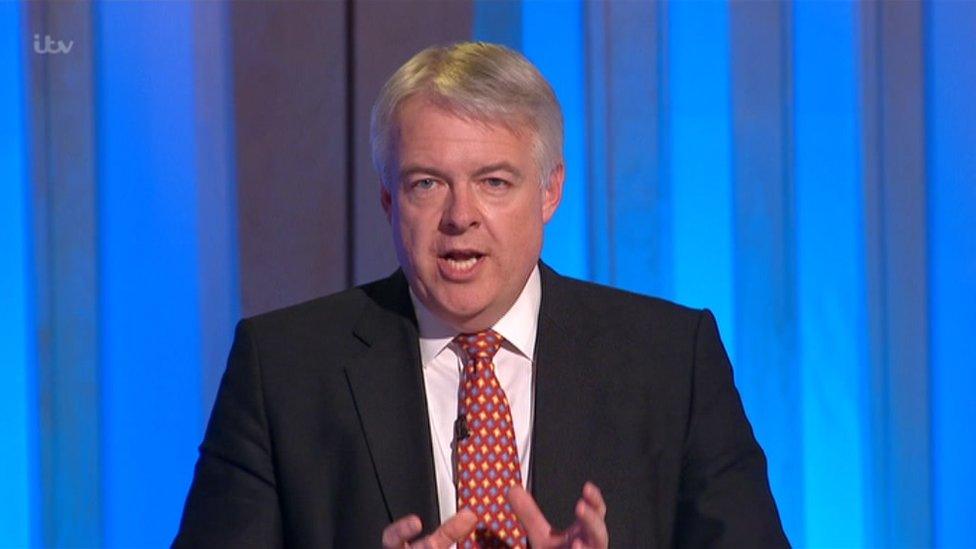
- Published15 April 2016
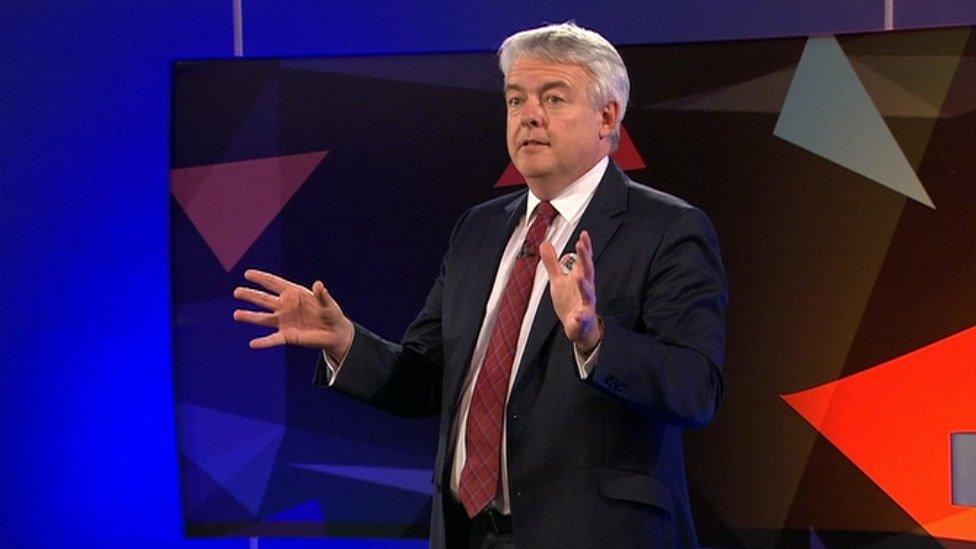
- Published14 April 2016
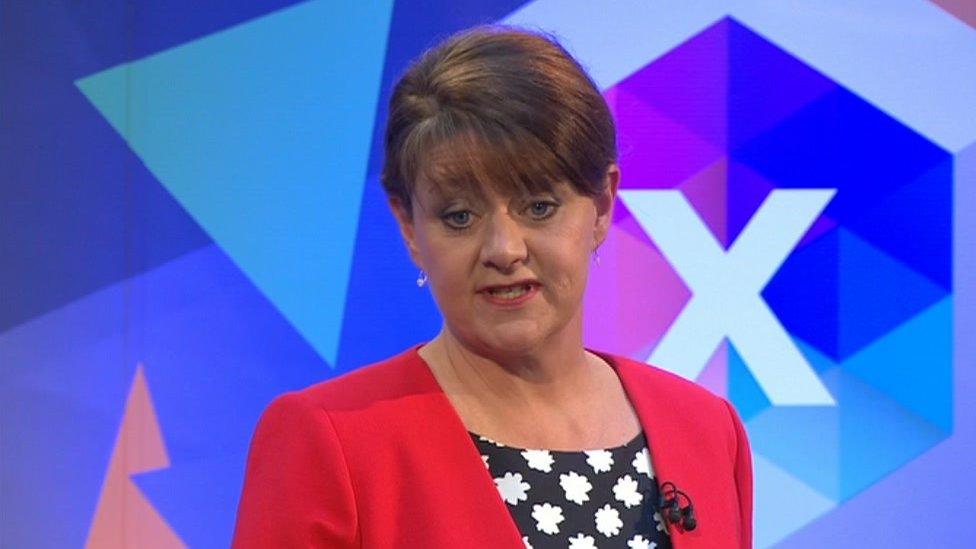
- Published13 April 2016
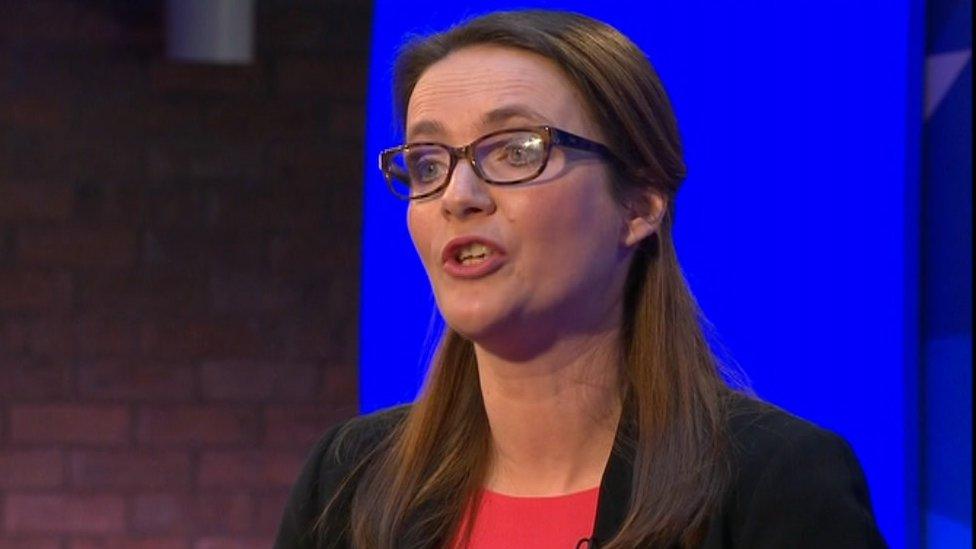
- Published12 April 2016
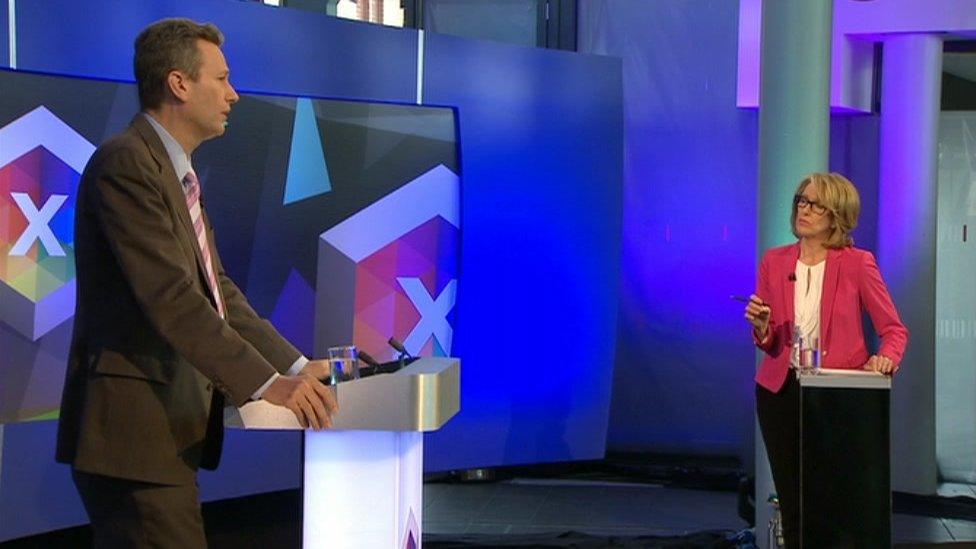
- Published11 April 2016
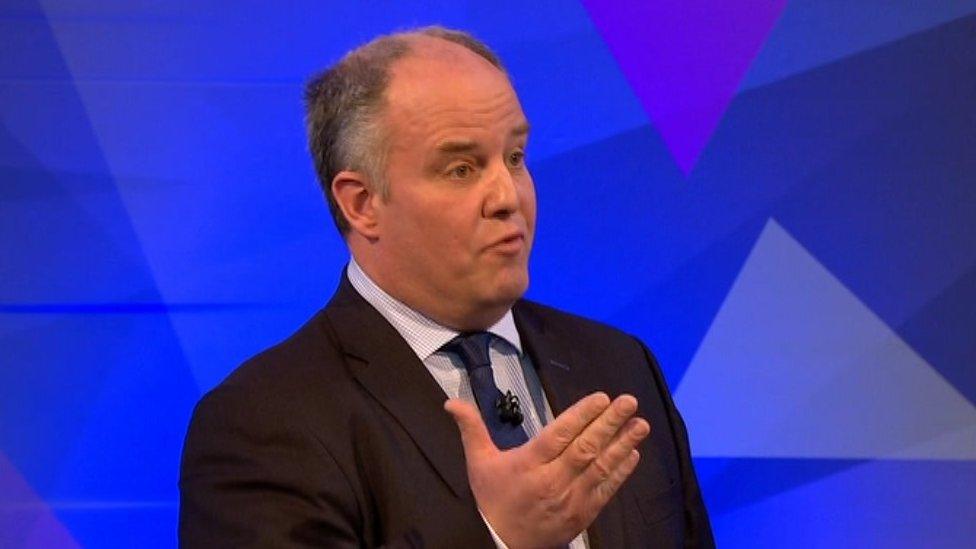
- Published3 May 2016
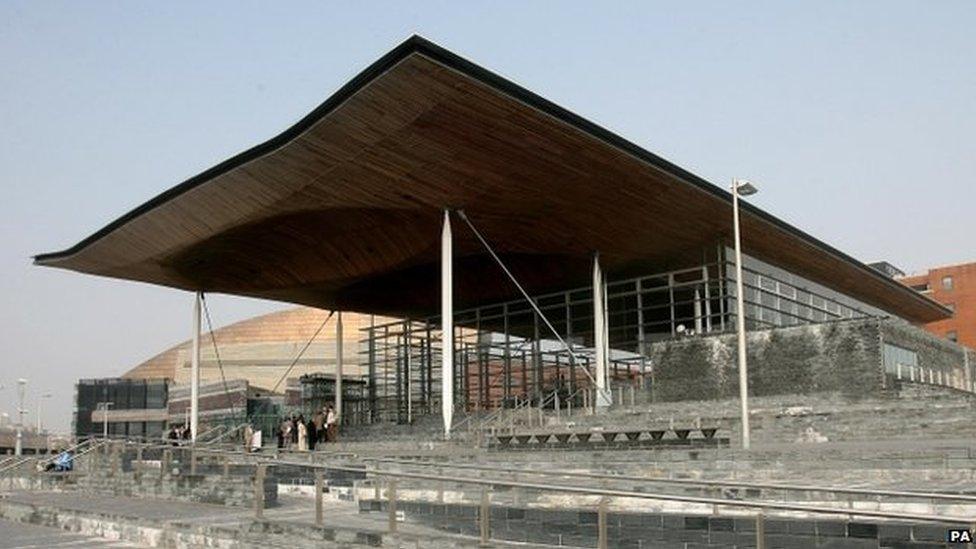
- Published22 April 2016
